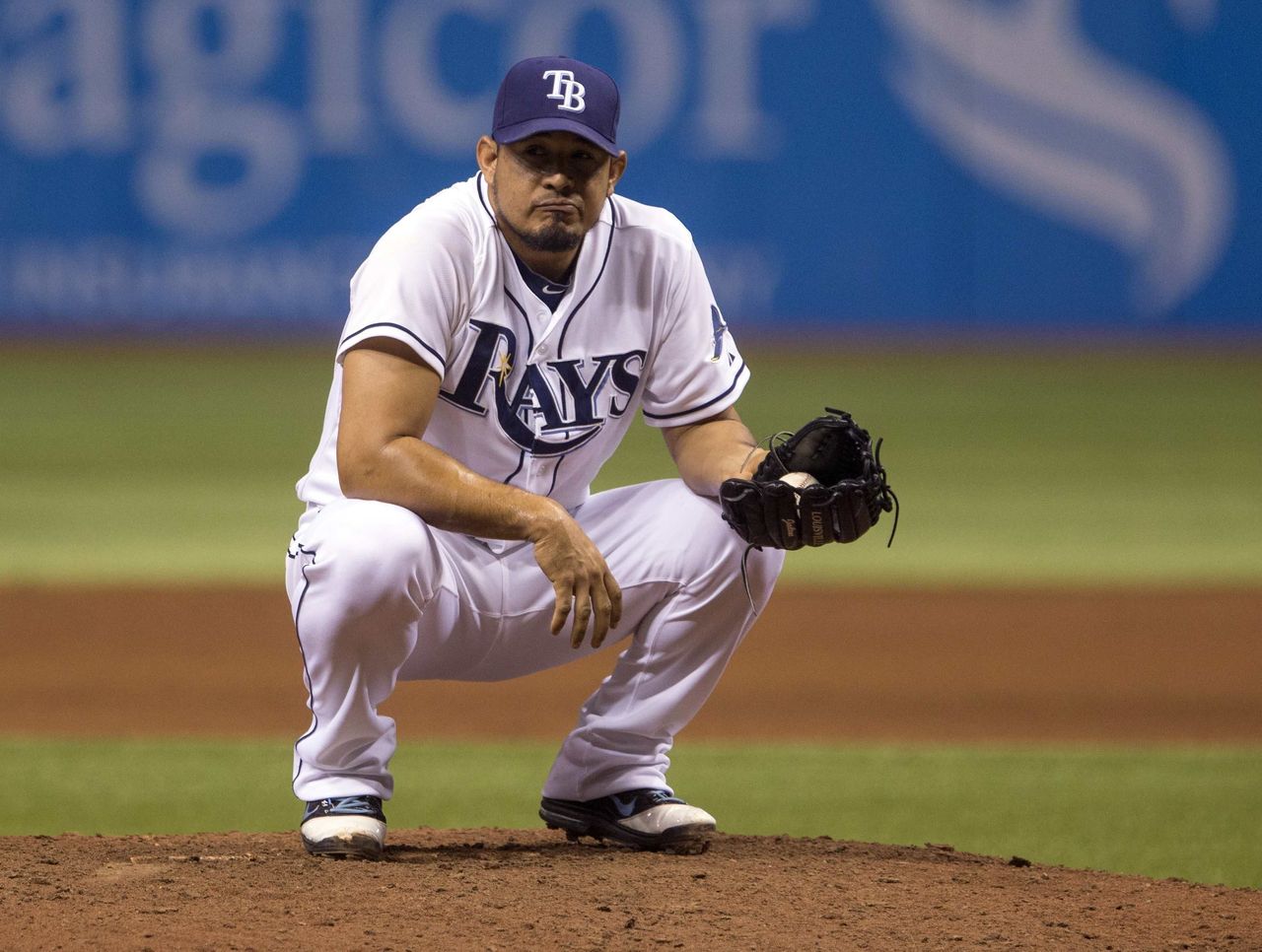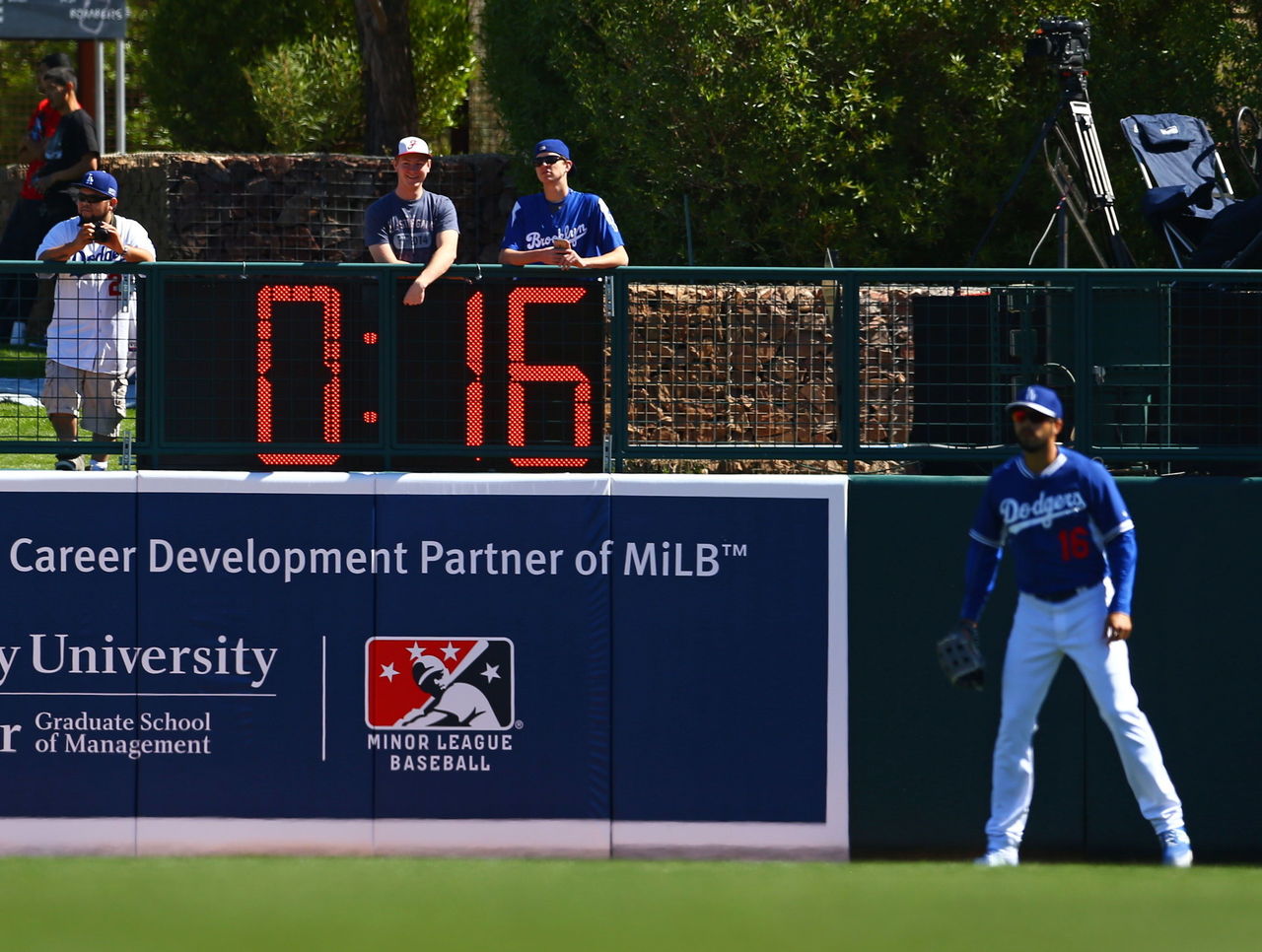Countdown to Opening Day - 20: The slowest-paced pitchers in baseball
In this 30-day series, theScore's MLB editors preview the 2015 season with an in-depth look at some of the significant numbers - milestones, jersey numbers and general miscellanea - poised to pop up throughout the campaign.
Get ready for the quickest season in years.
Major League Baseball is hoping the next game you watch is the fastest one you've seen in a decade after rolling out a series of pace-of-play rules this offseason. The most notable changes include tightening inning breaks and enforcing batter's box rules.
It also got us thinking about the 20-second pitch clock that's been bandied about in the Arizona Fall League and is said to be making its way to the major-league level at some point in the near future. Pitchers are generally against the idea, but who would be affected the most?
MLB's slowest pitchers

Just nine of the 88 qualified pitchers last season worked at a pace under 20 seconds between pitches - the quickest was Mark Buehrle at 17.3 - and if the list is expanded to include pitchers who threw at least 50 innings, the ratio becomes even more disproportionate (12-of-330).
Who are the worst offenders? Ranked by pace in seconds per pitch, including time per plate appearance and inning:
| Pitcher | Pace/pitch | Pace/PA | Pace/inning |
|---|---|---|---|
| Joel Peralta | 32.1 | 132.2 | 555 |
| Junichi Tazawa | 31.8 | 120.4 | 498.7 |
| Tony Sipp | 30.3 | 125.2 | 493.7 |
| Joaquin Benoit | 30.3 | 119.7 | 453.7 |
| Phil Coke | 29.7 | 108.7 | 481.9 |
(Courtesy: FanGraphs)
David Price was the slowest qualified starter last year at 26.6 seconds, followed by Jorge de la Rosa (26), Clay Buchholz (25.6), Edinson Volquez (25.3) and Chris Archer (25.2).
Length of games
The pace rules are said to be in the best interest of fans by improving baseball's watchability, which in case you're wondering, took up a record amount of your time last season.
Average game time over the last 10 seasons:
| Year | Time |
|---|---|
| 2014 | 3:02:21 |
| 2013 | 2:58:52 |
| 2012 | 2:55:58 |
| 2011 | 2:51:57 |
| 2010 | 2:50:46 |
| 2009 | 2:51:47 |
| 2008 | 2:50:38 |
| 2007 | 2:51:13 |
| 2006 | 2:48:11 |
| 2005 | 2:46:28 |
(Courtesy: ESPN)
The league is hoping that by tightening commercial breaks by as much as 20 seconds, it can trim up to 15 minutes off the average game.
Not the right time

The results from the AFL pitch clock experiment were positive, though officials admit the sample was too small to draw convincing conclusions from. Data from Salt River action showed games were on average 9-13 minutes quicker than last season after enforcing the clock, inning-break and pitching-change rules.
Most MLB pitchers remain vigilant in their stance against the use of a pitch clock for reasons ranging from tradition to concern over injury. There's no question pitchers like Peralta, who takes an average of nearly two-and-a-half minutes per plate appearance and over nine minutes per inning, need to be reined in.
But with less than five percent of pitchers actually meeting the 20-second criteria, baseball would be wise to take more time before implementing such radical change.